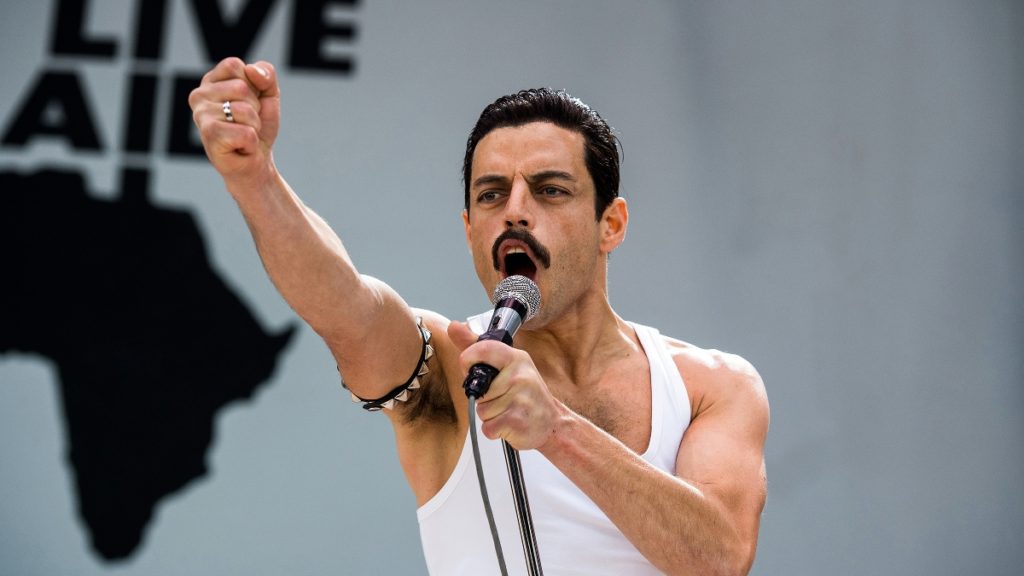The world of cinema is, perhaps, the most fast-paced entertainment industry. For decades, following its initial launch, many genres began to shape up and fill the vast array of cinematic opportunities available to explore. Daily shifts in social contexts seem to have had a considerable impact on film, as many directors and scriptwriters turned to contemporary realities for inspiration. The ever-expanding boundaries of international cinema have allowed filmmakers and audiences to experience such depths in the uncharted territories offered by the industry, that even more stages and genres have emerged.
Among the fundamental ones, which are usually representative for most motion pictures – such as comedy, drama, horror and thriller – there has been an increase in the number of biographical features produced and screened in the past decade. This trend also appears to be the case for 2020, and with the global context of the pandemic, as well as awards season fever, multiple biopics have become available to stream online.
Considering all of these aspects, there is no doubt that more and more scripts turn to the idea of portraying the life and hardships behind the appearance. An over-the-top artist, a struggling content creator, a ground-breaking researcher or a passionate human rights activist – they play an enormous part in assuring the continuity and acclamation of the video biographies.
Green Book Feels Like The Frontrunner People Want But Isn’t One We Need
Some recurring themes, such as music or film, provide an intriguing, rather than innovative, approach to this genre. And in most cases, under the appropriate script and direction, they have been critically approved, lavished with awards coverage and discussed by industry specialists. Thus, films included in this category, have a very likely chance of becoming instant classics and captivating viewers with their exemplary character analysis and distinctiveness.
Naturally, their eventual success is also conditioned by taking the right technical decisions in terms of who will be undoubtedly capable of playing the protagonist – in this case, a beloved international personality – and if the production team members share a collective vision on crafting the story.
Some filmmakers prove to have an inclination for biographical pictures, constantly working towards new and experimental ways of pleasing the public, and occasionally fulfilling their desire to make a solid statement. Some of their films manage to accomplish the later, while others remain centered around the former.
This is the case for director and producer Dexter Fletcher, who – in the past two years – became more and more popular in the media and around the world thanks to his brief, but notable involvement in directing the quadruple Oscar-winner Bohemian Rhapsody, after Bryan Singer was fired from the set. Even more so, one year later, his professional portfolio was in the spotlight once again, but this time, in the form of a musical – Rocketman. Some might not know, but this was not the first collaboration between Fletcher and lead actor Taron Egerton, having worked together in past, on the 2015 biopic about Olympian Eddie Edwards.
Filmotomy Podcast 93: Are We Over the Green Book and Bohemian Rhapsody Oscars?
It would probably take an endless amount of time and double the effort and patience to come up with a list consisting of every biopic made in the last ten years. But still, there are some recent mentions worth making.
In 2018 alone, major Hollywood productions and Academy Award contenders and winners have fallen into this specific genre. Be it for Green Book‘s dramatic presentation of a not so distant reality that’s tragically recurrent even today. Damien Chazelle’s take on the 1969 Moon landing, and the events leading up to it with First Man. Or Spike Lee’s honorable depiction of the Ku Klux Klan infiltration, Blackkklansman. And even Adam McKay’s exposure of Dick Cheney’s rise to the position of Vice President in 2001.
This year, despite the unfavourable global context, the world of cinema could not have been left on hold, and eventually, a multitude of biopics were made available on VoD or designated streaming platforms. Perhaps one of the most controversial features of the year – at least during the first half of 2020 – was Josh Trank’s Capone, starring a nonconformist portrayal by Tom Hardy and an ultimate writer-director combo failure by Trank. Another undesired result in this area is represented by Stardust, which apart from Johnny Flynn’s arguably consistent performance as David Bowie, makes for an unnecessary biography with no actual results. And limited awards appeal.
Genre Blast: Who’s Playing Whom? – The Biopic
At the other pole, however, there are many popular and occasionally promising features which have premiered during the year, both as part of renowned film festivals or through streaming services. Francis Lee’s Ammonite, about the ambitious 1800s paleontologist Mary Anning; Julie Taymor’s The Glorias on human rights activist Gloria Steinem; Aaron Sorkin’s The Trial of the Chicago 7 drama, based on true events; Shirley, featuring Elisabeth Moss in the lead role; and David Fincher’s upcoming Mank – are just some of the most discussed biopics of the year.
The answer remains, of course, whether or not most of these motion pictures will stand the test of time. Biopics often gain a kind of Oscars enticement pigeon-holing, for instance.
Opinions may vary, but one aspect is certain – as long as filmmakers will fight to defend their vision and aspire to create memorable pieces, this will continue to be a widely explored genre. Leaving aside repetitive work and looking to pave new paths towards innovation and originality, directors and screenwriters all over the world may have already begun crafting the next big cinematic experience. The permanent use of contextual events will encourage new generations to examine the people behind the persona, the dedication behind the discovery and furthermore, will introduce them to notable trailblazers and content creators.

